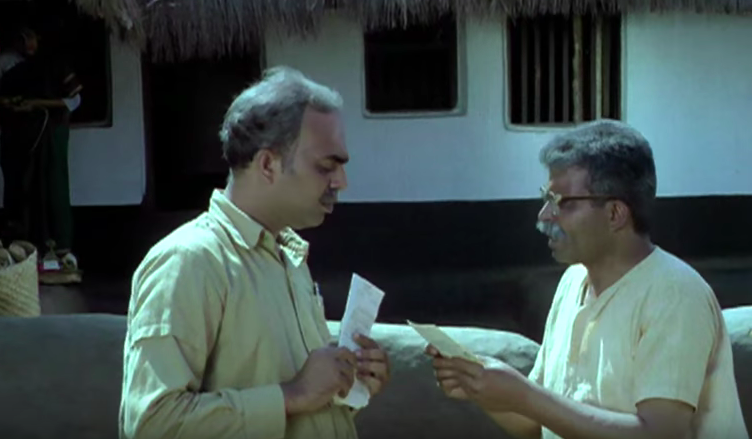Mar 9, 2022
Why simplifying the law is important in India
Sumeysh Srivastava

Rukmini, lives in Delhi and works at a bank. She has been married for three years and is constantly taunted by her husband and his family, who want her to quit her job and be a housewife. She enjoys her work and is adept it but she feels distressed from the snide comments from her husband and in-laws and it’s slowly affecting her ability to work. She doesn’t realize that the Protection of Women from Domestic Violence Act 2005 protects her from the emotional abuse inflicted by husband and his family. If she was familiar with it, she could file a complaint and ask a magistrate to pass a “compensatory order” which when passed, would order her husband to pay money as compensation for the mental torture and emotional distress caused.
Successive governments have shown continued enthusiasm for law-making and many laws have been written and passed concerning a vast array of topics. But what happens to these laws after they are passed? Laws are not just about what you can’t do, they are also about what you can do, what you’re protected from, what sort of rights you have, what recourse you have and to varying degrees, what your duties are.
Knowing the law allows people to protect themselves, assert their rights and seek justice when they have been wronged.
Going back to Rukmini, let’s assume that she is aware of the existence of the law protecting women from domestic violence. How would she find out about the details of the Act and how it applies to her?
Laws were not written to be an exclusive, niche product meant for experts. They concern everyone in India and are applicable to almost everything. Naturally one would assume that laws are very accessible.
Currently, however, finding a law that you want to know about is a very difficult task. There are two main reasons behind this.
First, the right laws are hard to find. This is because how a non lawyer would articulate a legal problem is far removed from the vocabulary of the legal system and the parties of the legal system. A person who faces physical abuse would probably just know to say that their husband hits them. But however, to reap the benefits of a helpful search result, one would have to use more sophisticated language. A fundamental problem is that in a situation of a husband beating his wife, only a person of certain privilege would be able to envisage that searching “laws for women” across sites might give solutions for a problem of their husband beating them up. Someone who doesn’t have this sort of privilege would not be able to articulate the problem with the vocabulary required. Further, while this search result might through up some results, the results are lists of laws but no explanation of how they operate. In such a situation how would one know to look under the “Protection of Women from Domestic Violence Act, 2005”? Only someone who is familiar with that particular acts would know. Which is why lawyers have so much power, because in terms of access to information, knowing exactly what you are looking for is a privilege.
Second, even if you find the right law, legal text, in its current form is difficult to understand. The structure of the bare text and the complex language become huge barriers for understanding even basic information.
This lack of knowledge, along with the lack of access to knowledge is what leads to the law being viewed with fear and suspicion, instead of a tool for empowerment as it’s intended to be.

At Nyaaya, we are committed to making the law easier to find and understand. The first thing we did, when we started out about a year ago was to talk to a diverse group of people to comprehend the issues related to understanding the law.
The first issue was the difficulty in accessing legal information. Books and publications can be prohibitively expensive, and only the latest edition is relevant, so you can’t buy old/used copies. A commentary on the Criminal Procedure Code, for example, which is supposed to tell people what the police can and cannot do, can cost around 3000 rupees. State laws are not simply expensive, they’re completely unavailable from most common sources.
Digitisation is supposed to help with this. However, the huge volume of laws dating back to the 1800s, and the fact that they are constantly changing, means that a lot of time and resources are needed to keep the information accurate. Thus, online legal resources are either locked behind paywalls or, when free, can be inaccurate or outdated.
This is how India Code, the Government’s main source for laws, represents the IPC.
Surely, we thought at this point, it is the government’s duty to provide free access to laws? Unfortunately, we found that information related to the law is dispersed and hidden in a jungle of websites run by different departments at central and state levels.
Even though the government is the most authentic source of legal information, there are some issues common to all it’s portals.The content is often not updated — for example, the major changes introduced to criminal laws after the Nirbhaya incident have not been incorporated in the main Acts put up by the government.
In most websites, there is no description of the legal resources available, no provision for online help, the website is too text heavy and intimidating and there are no clear instructions on how to access legal information.
Once you find a law, what do you do with it?
Let’s be optimistic and assume that Rukmini finds the relevant law and reads what it says. Is that sufficient to help her in realising her rights? This is something that we must consider when we talk about legal awareness. Most legal awareness efforts and legal information portals focus on informing citizens about the law which applies to them or may apply in a situation. Is it enough to present the laws in a comprehensive, accessible manner? Will that increase understanding? No. The second issue that people face is with legal language.
In trying to be exhaustive, the law gets filled with jargon. It is full of words, phrases and terms like ‘prima facie’, ‘proviso’, ’notwithstanding’ etc., only understood by lawyers.
The solution is to not just put up laws, then, but also explain them in a way that people understand. What we need is a one-stop resource, where laws are easily accessed and simply explained. That is the only way to make legal information easier to access and to enable all citizens to participate fully in a democracy.